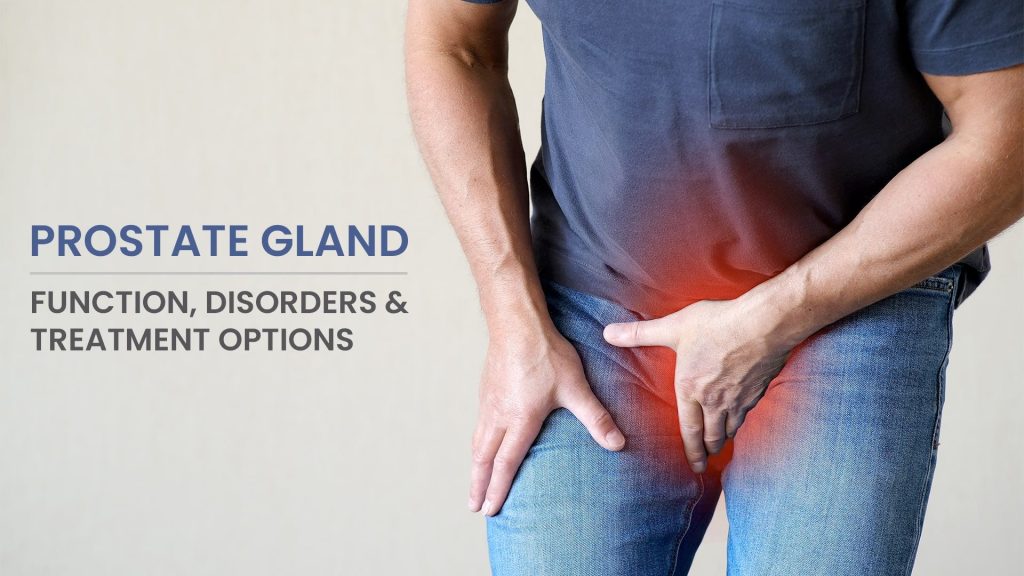When it comes to men’s health, the prostate plays a pivotal role. It’s a small gland, roughly the size of a walnut, located just below the bladder. Although its size is modest, the prostate is incredibly important to men’s overall well-being. It produces the seminal fluid that nourishes and transports sperm. However, as men age, the prostate can become susceptible to various conditions, which can severely affect quality of life. From benign prostate enlargement to prostate cancer, many men are faced with challenges related to this small yet significant organ.
This blog will explore the importance of prostate health, the challenges men face regarding prostate issues, and most importantly, the essential aspects of prostate support for men.
Why Prostate Health Matters
Prostate health is an often overlooked aspect of men’s health, but it becomes increasingly crucial as men age. By the age of 50, nearly half of all men will experience some form of prostate condition. According to the American Cancer Society, about 1 in 8 men will be diagnosed with prostate cancer during their lifetime, making it the second most common cancer among men after skin cancer.
The prostate gland has a direct impact on several aspects of male health, including:
- Urination: The prostate surrounds the urethra, the tube that carries urine from the bladder to the outside of the body. When the prostate enlarges, it can put pressure on the urethra, making urination difficult or painful.
- Sexual Health: The prostate also contributes to sexual function. Any disruption in its function can lead to problems such as erectile dysfunction or painful ejaculation.
- Fertility: Since the prostate produces seminal fluid, any issues with prostate health can affect fertility and the ability to conceive.

Understanding how vital the prostate is for daily life can help men prioritize their health and seek timely support if issues arise.
Common Prostate Health Issues
1. Benign Prostatic Hyperplasia (BPH)
One of the most common prostate conditions, especially in men over 50, is Benign Prostatic Hyperplasia (BPH), a non-cancerous enlargement of the prostate. As the prostate grows, it can squeeze the urethra, causing symptoms like frequent urination, difficulty starting or stopping urination, weak urine flow, and the need to urinate at night (nocturia). Though BPH is not life-threatening, its symptoms can significantly disrupt daily life.
2. Prostatitis
Prostatitis is the inflammation or infection of the prostate, which can be acute or chronic. It can be caused by bacterial infections or other factors. Symptoms include pain or discomfort in the lower abdomen, painful urination, and flu-like symptoms in the case of acute prostatitis. Chronic prostatitis can be particularly difficult to diagnose and treat, often requiring a combination of antibiotics, lifestyle changes, and pain management.
3. Prostate Cancer
Prostate cancer is one of the most widely discussed prostate issues. It develops when cells in the prostate grow uncontrollably. The exact cause of prostate cancer is still unclear, but factors such as age, family history, race, and certain genetic mutations may increase the risk. In its early stages, prostate cancer often presents with no symptoms, making regular screenings (such as a PSA test or digital rectal exam) crucial for early detection.
Although prostate cancer can be deadly if not treated, it is often slow-growing, and many men live for years with it. Treatment can involve surgery, radiation, hormone therapy, or a combination, depending on the severity of the cancer.
Men’s Prostate Support: Physical and Emotional Well-being
Prostate issues can have a significant physical and emotional impact on men. Prostate health support is critical not just in preventing or treating prostate conditions, but also in providing ongoing emotional and social support. Here’s how men can improve their prostate health and get the support they need.
1. Diet and Nutrition
Diet plays a significant role in prostate health. A balanced diet rich in fruits, vegetables, and whole grains can help keep the prostate healthy. Key foods known to support prostate health include:
- Tomatoes: Rich in lycopene, an antioxidant that may reduce the risk of prostate cancer.
- Cruciferous vegetables: Such as broccoli and cauliflower, which contain compounds that may prevent prostate cancer growth.
- Green tea: Known for its anti-inflammatory properties, green tea can help lower the risk of prostate issues.
- Omega-3 fatty acids: Found in fatty fish like salmon, omega-3s can reduce inflammation and improve overall prostate health.
On the flip side, men should avoid excessive intake of red meat, processed foods, and alcohol, as these can increase the risk of prostate issues, particularly prostate cancer.
2. Physical Activity and Exercise
Exercise is another cornerstone of prostate health. Regular physical activity, including aerobic exercises and strength training, can help maintain a healthy weight and reduce the risk of developing prostate-related problems. Exercise can also improve urinary function and sexual health by promoting circulation and reducing inflammation in the prostate.
In addition, staying active helps reduce stress and anxiety, which can be exacerbated by prostate health issues. Men experiencing prostate cancer or BPH may particularly benefit from low-impact activities like walking, swimming, or yoga.
3. Routine Screenings and Early Detection
Prostate cancer is often silent in its early stages, so routine screenings are essential. The American Urological Association recommends that men start having discussions about prostate cancer screenings at age 50, or earlier for those at higher risk (e.g., African American men or those with a family history of prostate cancer). Early detection through a Prostate-Specific Antigen (PSA) test or a digital rectal exam (DRE) can catch cancer before it spreads, improving the chances of successful treatment.
4. Emotional and Social Support
Dealing with prostate health issues can take a toll on mental health. Men with conditions like BPH or prostate cancer often experience feelings of frustration, embarrassment, or anxiety. This is why emotional support is just as important as physical health support.
Seeking the help of a counselor, joining a support group, or simply talking to loved ones can help reduce the emotional burden of prostate issues. Many cancer support organizations, such as the Prostate Cancer Foundation, offer resources to help men cope with the emotional aspects of diagnosis and treatment.

How to Prioritize Prostate Support?
The prostate is an integral part of men’s health that often gets overlooked until problems arise. Whether dealing with benign enlargement, prostatitis, or prostate cancer, men must be proactive about their health by maintaining a healthy lifestyle, seeking regular screenings, and getting the emotional support they need.
Prostate health support is essential for living a long, healthy, and active life. With the right resources, men can manage prostate conditions and continue to thrive. By focusing on prevention, maintaining a healthy diet and exercise regimen, and seeking professional medical advice when necessary, men can ensure their prostate stays in good health for years to come.
